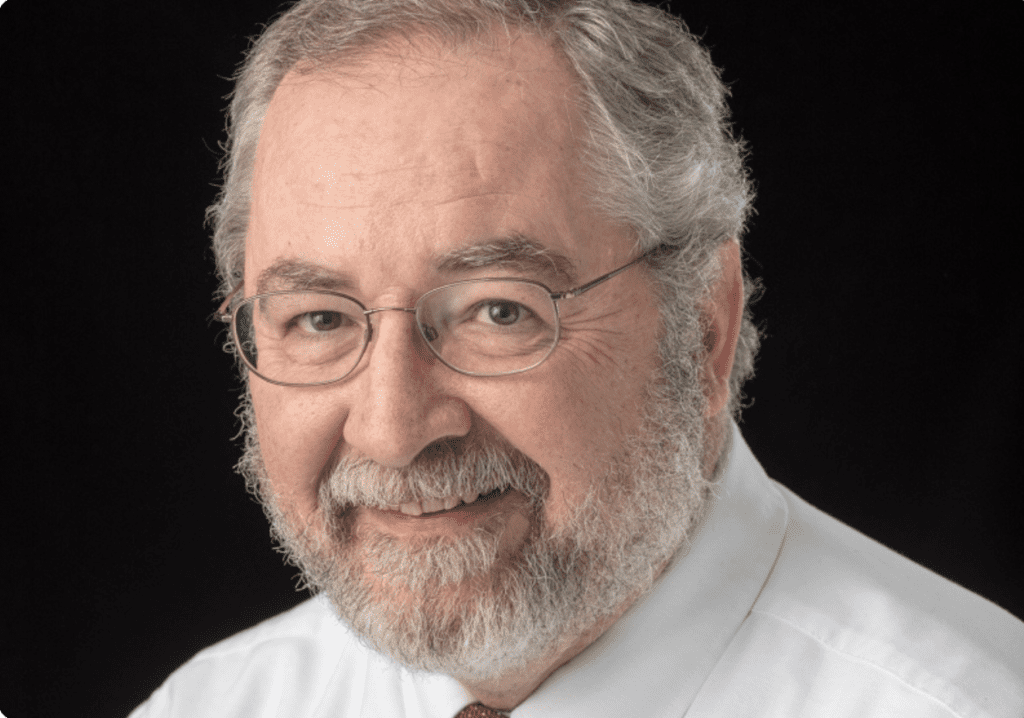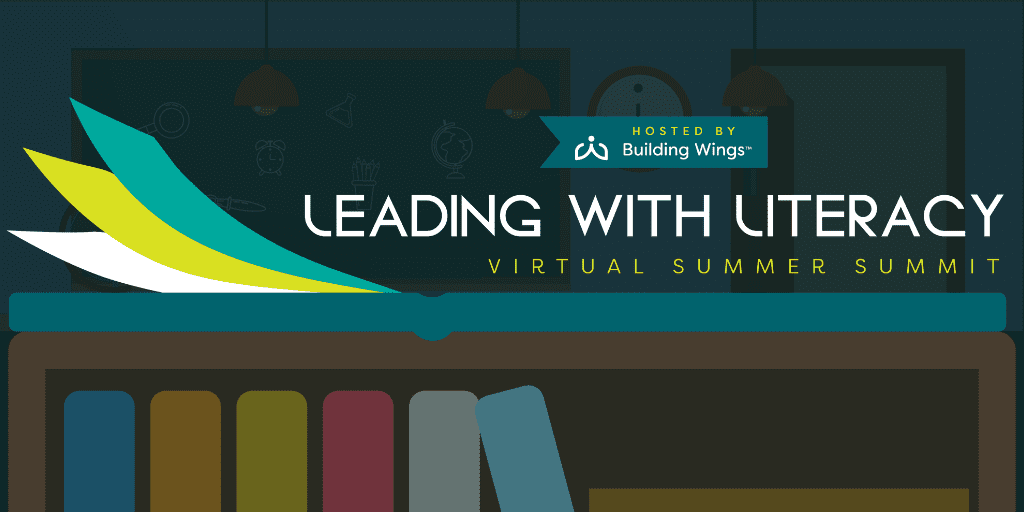Leading with Literacy 2023 Virtual Summer Summit
Was held on July 20, 2023
The second annual Leading with Literacy Virtual Summer Summit for Special Educators was held on July 20, 2023. See our Professional Development page for other options for professional development.

Session Titles and Speakers for the 2023 Summit
We thank the following speakers who shared their passion for inclusion, accessibility and comprehensive literacy instruction at the 2023 Summit.

Allison Dennis, PhD
and Amy Devin, B.S.
Introducing Rich Vocabulary During
Shared Reading: What, Why, and How
Allison Dennis, PhD is a former special education teacher who now serves as the Manager of Curriculum Development at Building Wings. With a master's and doctoral degree from the University of North Carolina at Chapel Hill, she brings expertise in critical thinking, innovation, instructional design, leadership, and literacy instruction. Based in Raleigh, North Carolina, Allison lives with her husband, son, and rescue dog, Theo. Her dedication to education and passion for inclusive learning have made her a valuable asset in shaping educational experiences for students with disabilities.
Amy Devin, B.S., is a highly experienced educator with over 17 years of dedicated work at the elementary level, specializing in supporting students with Autism Spectrum Disorder (ASD). She holds a B.S. from Wayne State University with an endorsement in CI and Elementary Education, and an Autism endorsement from Oakland University. Amy's passion for addressing the complex communication and literacy needs of her students led her to collaborate with the Center for Literacy and Disability Studies at UNC-Chapel Hill. She is known for her inclusive teaching approach and commitment to empowering students with ASD.

Lori Geist,
PhD, CCC-SLP
Student Outcomes: AAC, Core Words &
Aided Language Input with Project Core Implementation Model
The session will review the design and evaluation of the Project Core implementation model. The model is aimed at supporting teachers’ use of evidence-based practices for teaching communication to students with extensive support needs and limited symbolic communication. All components of the model are open-source and available from the Project Core website (www.project-core.com). The model was designed in partnership with school-level implementation teams across more than 150 classrooms in the United States. The practices targeted include: (1) augmentative and alternative communication (AAC); (2) core vocabulary; and (3) aided language input. The session will provide an overview of the evaluation methods applied to realize a scalable and sustainable implementation model aimed at classroom-based AAC intervention. Teacher and student outcomes from development (years 1-2), pilot (years 3-4) and dissemination (year 5) schools across the 5-year research effort will be reported. Descriptive data will be presented using graphs and tables to support discussion of changes in teachers’ use of the practices and the provision of AAC, graphic symbols and core vocabulary in the classroom. Self-assessments supporting positive changes in teachers’ perceptions related to the communication intervention will be shared. Finally, student outcomes as measured by the Communication Matrix (Rowland, 2011) will be presented, featuring data from a descriptive study following 49 students across 2 years in the classrooms of 53 teachers (Benson-Goldberg at al., 2022).

Gretchen Hanser, PhD
Getting Writing on the Radar for Students
with Complex Communication Needs
Gretchen has worked in the field of assistive technology and literacy for students with significant disabilities for over 25 years. She is an educator and an occupational therapist. Her primary focus has been on augmentative and alternative communication and literacy for students with the most significant disabilities. She has worked in a variety of educational settings developing model classrooms, developing school based assistive technology centers, providing teacher and related service provider trainings, participating in assistive technology assessment teams and working directly with students and staff in the classroom. Gretchen has taught university classes and presents nationally and internationally on these subjects. She is currently the Director of Assistive Technology and Literacy Instruction at the International Academy of Hope in New York City.

Closing Remarks

David Koppenhaver, PhD
Keynote Address
David Koppenhaver, holds a Ph.D. in curriculum and instruction from the University of North Carolina at Chapel Hill (UNC). He has been a professor and faculty member in the Department of Reading Education and Special Education (RESE) since 2004. His research focuses on literacy in children with high support needs including autism spectrum disorder, intellectual disabilities, complex communication needs, and multiple disabilities. In 1998 he co-founded the Center for Literacy and Disability Studies at UNC and in 2002 was a Fulbright Scholar at the University of Queensland in Australia. His most recent publications include Comprehensive Literacy for All: Teaching Students with Significant Disabilities to Read and Write coauthored in 2020 with Karen A. Erickson, and Social and Dialogic Thinking and Learning in Special Education: Radical Insights from a Post-Critical Ethnography in a Special School co-authored in 2021 with Karen A. Erickson, Charna D’Ardenne, Nitasha M. Clark, and George W. Noblit.

Mike Marotta, ATP
Flip the Script with Quality PD:
From “I don’t want to do that” to “I want to learn more!”
Mike is the Director of the Richard West Assistive Technology Advocacy Center and serves on both the CAST Accessible Educational Materials and Center on Inclusive Technology and Education Systems (CITES) Advisory Boards. Mike is also the founder of EdcampAccess NJ and co-moderator of the weekly #ATchat Twitter chat. Mike is one of the co-authors of the ISTE book Inclusive Learning 365: Edtech Strategies for Every Day of the Year. For details visit https://inclusive365.com/

Caroline Musselwhite, PhD
AAC and Literacy – Maximizing Success!
Whether your students are emergent or conventional learners, supporting their communication skills is essential for maximum success in language and literacy. This presentation will review ways to provide AAC supports during multiple components of comprehensive literacy instruction. Participants will get a link to a dropbox with extra tips and tools!

Beth Poss,
M.A., M.S.Ed.,CCC-SLP
Students Tell the Story:
Examining Authentic Student Work for Data
Beth Poss is an educational and technology consultant, accessibility and inclusion advocate, speech/language pathologist, former special education administrator, and former assistant principal. In addition to her independent consulting, she is the Director of Educational Programs for LessonPix. Beth is passionate about designing educational environments that support all students in accessing a rigorous curriculum and meeting educational outcomes. In her work with school districts, universities and national and state level organizations she focuses on literacy, augmentative and alternative communication, Universal Design for Learning and inclusive educational practices. She is one of the authors of Inclusive Learning 365: EdTech Strategies for Every Day of the Year, released in August 2021.

Kelli Suding, M.Ed. and Michelle Soriano, M.Ed.
AEMing for Synergy and Assuring
Accessibility in Professional Development
Kelli Suding is a Technical Assistance Specialist with CAST’s National Center on Accessible Educational Materials (AEM Center) and the Center on Inclusive Technology & Education Systems (CITES), where she promotes the creation, delivery and use of AEM and accessible technologies (AT) to support access for all learners. Kelli has a background in general education and special education classrooms. She holds a Master’s Degree in Learning and Technology with teaching licensing in both general and special education. Kelli has keynote, national, state, and local presentation, and training experience. Her instructional experience has been with students requiring mild, moderate, and intense intervention. Kelli’s specializations include Universal Design for Learning, Autism, AEM & AT, Accessibility & Integration, Specific Learning Disabilities.
As a technical assistance specialist for the National Center on Accessible Educational Materials (AEM Center) and the Center on Inclusive Technology & Education Systems (CITES), Michelle Soriano promotes inclusive, equitable, and accessible instructional opportunities for students who receive special education services through the use of accessible educational materials and technologies. Michelle has a diverse background in education, including experience in general education, special education, administration at the local, regional, state and national levels. She holds two Master’s Degrees, one in Special Education and one in Instructional Technology. Michelle’s passion in education resides in supporting educators with embracing learner variability utilizing Universal Design for Learning in order to empower students in guiding their own learning journey according to their personal preferences and needs.

Sarah Wakabayashi,
M.S. CCC/SLP
Using Data to Optimize Communication Intervention and Literacy Instruction
Comprehensive literacy instruction is the ideal context for providing communication intervention for students with complex needs. When educators provide rich, age-respectful content that is engaging and challenging, students suddenly have something to say - a reason to communicate. A comprehensive literacy curriculum provides that content - the language, stories, topics, and concrete routine that is reading a book. With book in hand, educators can target joint attention, social interaction, linguistic competence, and a variety of communicative functions, along with other important skills related to overall communicative competence for those individuals using AAC systems. Data from these literacy experiences can then inform instruction - demonstrating that it, too, has a story to tell. Join me as I share some of our stories, and how literacy instruction has opened up a world of communication possibilities for my students with complex communication needs.

Elisa Wern, M.Ed.,
OTR/L, ATP
Community Building, Book Studies, & Non-Traditional Professional Development Approaches to Enhancing Comprehensive Literacy Instruction
Key topics covered in this session include:
- Understanding the foundations of professional development for adult learners who support learners with complex needs
- Building community through interaction and collaboration
- Cultivating meaningful and diverse resources to enable ongoing discussion during asynchronous learning opportunities
- Strategies for data analysis to inform future needs
- Collaborating among colleagues, families, and communities to support literacy development. Participants will leave this session equipped with practical tools, resources, and be ready to launch a book study or other non-traditional professional development opportunity around comprehensive literacy instruction for students with significant disabilities. By fostering a community of practice, participants will gain ongoing support, inspiration, and a network of colleagues
Coaching, supporting students and families primarily through teletherapy evaluations, consultations, and interventions. She coordinates the international book study on Comprehensive Literacy for All online. She shares intervention ideas and resources on Instagram and Twitter @wernedat
Why Attend?

EFFICIENT
In just four hours, you will gain
fresh strategies, tip sheets, and
templates from literacy leaders
to enhance your instruction for
students with complex learning
needs.

PERSONALIZED
Customize your learning path by
selecting from several live
sessions. Plus, hear inspiring
opening and closing remarks
from Dr. David Koppenhaver
and Don Johnston.

CPDU Credits
Do you need summer professional
development? You’ll receive
a completion certificate when you
register for the virtual summit,
attend the sessions, and fill out
the post-session form.
FAQs
All registrants received links to recorded videos of all sessions. We are not offering these recordings for purchase following the Summit.
All registrants who attended the live sessions will receive an email with a certificate of professional development within a week of the conclusion of the Summit.



